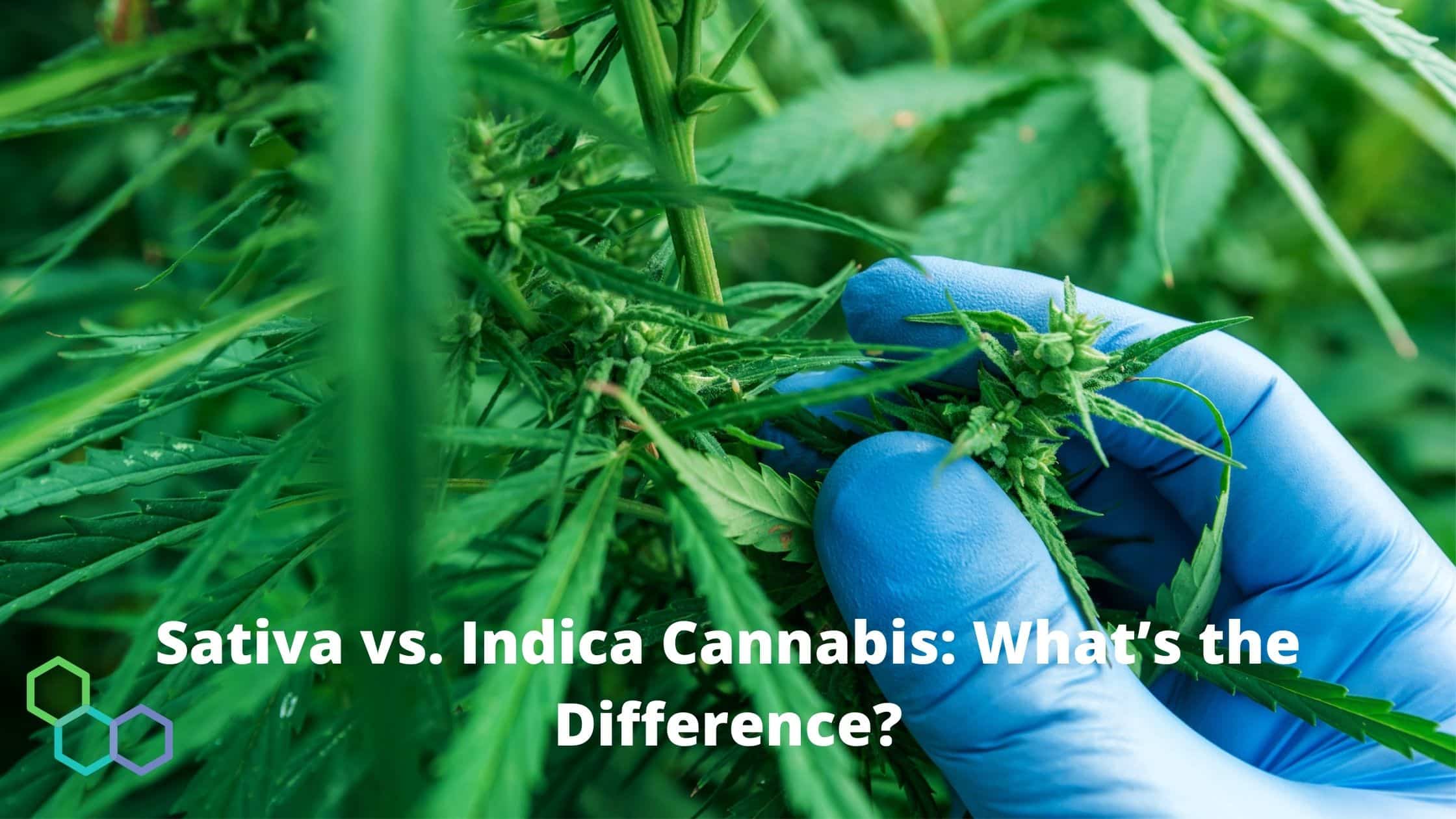Sativa vs. Indica Cannabis: What’s the Difference?

When it comes to talking about medical cannabis, two terms you hear a lot about are the cannabis species Sativa and Indica.
If you were in a field of cannabis, you could actually tell quite easily which plant is Indica and which is Sativa. A general rule of thumb is that cannabis Sativa grows taller and has thinner leaves compared to cannabis Indica which is shorter, bushier and has wider leaves.
But most people are not interested in the physical characteristics or find themselves in a field of cannabis! What you have likely heard more about is the purported difference in effect that Sativa and Indica can have when consumed. Before we get into that, there are a couple of things to understand about cannabis and its effects in general.
Medical cannabis affects everyone differently
The first thing to understand is that like any other medicine, cannabis affects everyone differently. Your own personal physiology, mental health, metabolism and diet play an integral role in your personal experience with medical cannabis.
To safely figure out the effects medical cannabis might have on you, your best first step is to talk to a medical professional and see if medical cannabis is right for you. Be sure to ask lots of questions!
When first taking cannabis, it is always recommended to start low and slow, to judge what dosage levels work best for you. It is, of course, always recommended to follow your physicians’ instructions. Keeping a journal may help if you are new to cannabis as you will soon learn that there are many different varieties with a variety of consumption methods from pre-rolled ‘joints’ to tinctures, edibles, beverages, creams, patches, pills and even suppositories. Each of these cannabis varieties and consumption methods have different reported benefits and effects.
Different methods of consuming cannabis will give different effects, as well as a different duration of these effects.
For example, when smoking/vaping cannabis the effects start within minutes, peak within the first 10 -30 minutes and last for a couple hours; whereas, edibles can take up to an hour to feel the effects but can last for many hours.
Just like many things on the Internet, there is just as much misinformation as there is information and cannabis has quite a colorful past. Thanks to an increase in scientific research on cannabis over the past few years, we are starting to scratch the surface of all the medical benefits from the cannabis Sativa and cannabis Indica plants.
Common effects of Cannabis
According to documented research on Sativa and Indica, the common effects of cannabis include: a sense of elation, euphoria, wellbeing, spontaneous laughter, increased appetite, dry mouth and possibly a quiet and reflective mood.
In a comprehensive review in 2017 by the U. S. National Academies of Sciences into the health effects of cannabis, they found conclusive evidence that cannabis can help manage chronic pain, nausea from chemotherapy treatment, some symptoms of MS, epilepsy, fibromyalgia, sleep apnea, Tourette’s syndrome and anxiety.
Common reported effects of Sativa
Sativa strains are more known to be uplifting, an elevation of mood or an energizing effect that can help:
- Reduce stress or anxiety
- Stimulate creativity
- Migraine and headache relief
- Helps relief symptoms of depression
- Increases appetite
- Increase sense of well being
Common reported effects of Indica
Indica strains are more known to be typically associated with deep relaxation and having full body effects.
- Relieves aches and pains
- Aids with sleep
- Anti-Inflammatory
- Stimulates the appetite
- Reduces stress and anxiety
- Relieves spasms and seizures
All this being said researchers are starting to discover that it is less about the individual strain but rather the strains individual cannabinoid and terpene content. But in a nutshell, cannabinoids and terpenes are the compounds found within cannabis that determine the strains overall characteristics and effects. So use these “rules of thumb” about the common effects of Sativa and Indica as just that, and talk to a medical professional about what strains of cannabis might be right for you.